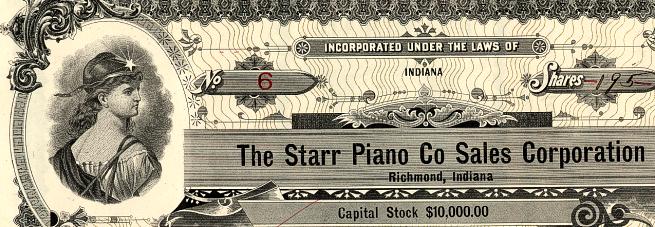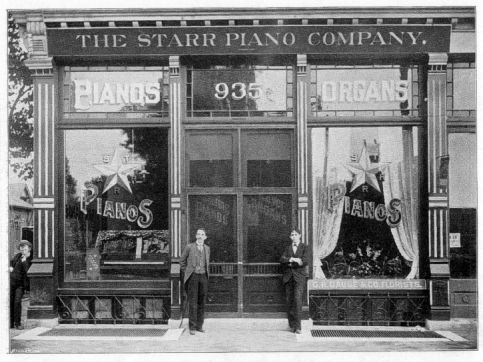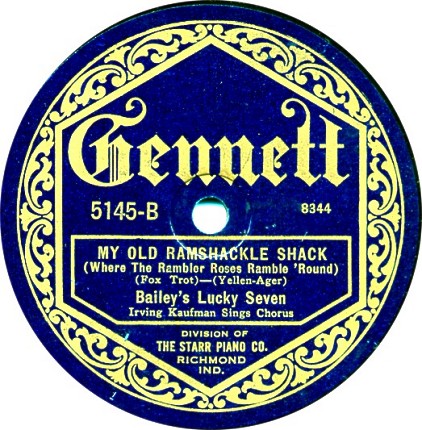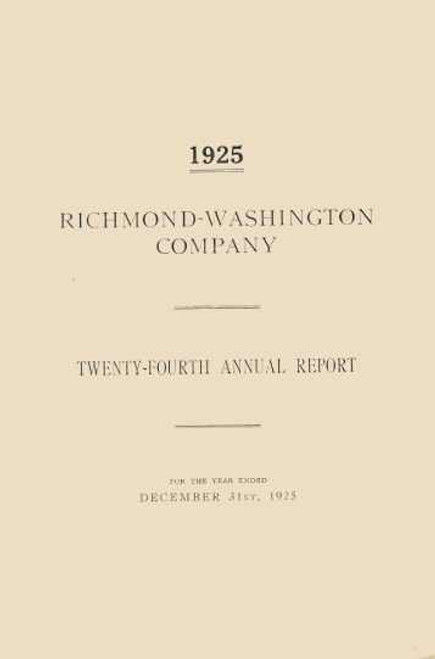Beautiful certificate from the Starr Piano Co Sales Corporation issued in 1925. This historic document was printed by Goes and has an ornate border around it with a vignette of an allegorical woman. This item has the signatures of the Company's President, Harry Gennett and Secretary, Clearence Gennett and is over 81 years old. The certificate was issued to the Starr Piano Co and was endorsed by Fred Gennett on the back as Secretary. 
Certificate Vignette The Starr Piano Company, Inc., of Indiana was owned exclusively by the Henry Gennett family from the early 1900's until 1952 when the Indiana plant was sold and the manufacture and sale of pianos was terminated due largely to foreign competition.
The Starr Piano Company and The Gennett Record Company In 1872, a number of prominent Richmond, Indiana businessmen, headed by James M. Starr, organized a company to manufacture pianos. The Starr Piano Company, as it came to be known, was the first piano company west of the Alleghany Mountains. The company grew steadily and incorporated in 1893 under the direction of Benjamin Starr, John Lumsden, and Lumsden's son-in-law Henry Gennett. Gennett served as president of the company, and over the years his three sons were officers: Harry as vice-president and general manager; Fred as secretary; and Clarence as treasurer. By 1912, the company was said to be the largest manufacturer of pianos in the world. With all factory facilities in Richmond, outlet stores were located in Birmingham, Boston, Chicago, Cincinnati, Cleveland, Detroit, Indianapolis, Kansas City, Los Angeles, Nashville, New York, Portland, and San Francisco. The floor space in the factory covered more than twelve acres, and 600 employees were on the payroll. An average of forty pianos a day were built. All parts and cases were manufactured in-house for grand, upright and player pianos, and the instruments received numerous awards for tone quality, case design, and construction. 
Star Piano Showroom In 1915, Starr entered the recording field with obsolete recording equipment and old master discs from a bankrupt firm in Boston. From 1915 to 1918, records were issued under the Starr label, but the company found that some independent dealers refused to carry the records because the name Starr was already strongly associated with pianos and phonographs. The label name was changed to Gennett in 1918 at the suggestion of Fred Gennett. The following year, 1919, was the most profitable in the history of the Starr Piano Company and its subsidiary, the Gennett Record Company. The Gennett catalog was expanded in both classical and popular music discs, and Fred Gennett signed recording contracts with concert artists, speakers and popular figures. These early acoustically recorded discs contained items as diverse as speeches by William Jennings Bryan and members of the Ku Klux Klan; symphonic, band and sacred music; and physical culture exercises. 
Gennett Record Company Label By 1921, the company had recording studios in Richmond and New York City, and pressings were done at the Richmond plant and by H.S. Berliner in Montreal. During the early 1920s the entire line of Starr products increased to an annual production of 15,000 pianos, 35,000 spring-driven phonographs, and 3,000,000 records. The Gennett Record Company is acknowledged as a pioneer and leader in supplying records to chain stores and mail order houses. Sears and Roebuck carried the Silvertone, Supertone, Conqueror and Challenge labels, and Gennett supplied the Montgomery Ward chain as well. Gennett masters were released under more than 70 labels, including Bell, Black Patti, Champion, Decca, Gold Seal, Herwin, QRS, and Varsity. In 1916, Harry Gennett's business trip to England resulted in Gennett masters appearing on many English labels, including Winner, Guardsman, Coliseum, and Vocalion; Australian labels also used Gennett masters. Gennett masters also were leased or sold to Paramount, Vocalion, and OKeh. The company entered the jazz market largely due to the efforts of Fred Wiggins, the manager of a Starr music store in Chicago. He scouted for artists to record for Gennett, "discovering" musicians like Gene Autry and the New Orleans Rhythm Kings. In 1923 jazz pioneers, including the New Orleans Rhythm Kings, King Oliver and his Creole Band, and Jelly Roll Morton came to Richmond to record, and helped to establish Gennett as a major jazz label. Younger, and at that time less established, jazz artists who made acoustical recordings at the Richmond studio included Bix Beiderbecke, Tommy Dorsey, and Hoagy Carmichael. In the New York studio, Louis Armstrong and the Red Onion Jazz Babies and numerous blues musicians recorded, along with other popular dance bands of the day. Gennett was possibly the first commercial record company to release ethnic music discs. In 1926, Fred Gennett arranged with resort chain owner Fred Harvey to make records of the Hopi Indians for the tourist trade. Gennett arranged for Dr. J. Walter Fewkes to record the Hopi discs at the El Tovar Hotel at the Grand Canyon, where elders of the tribe were invited to come record their traditional songs. Fewkes, Chief of the Bureau of Ethnology of the Smithsonian, was the first ethnologist to make phonograph recordings in the field when he made cylinder recordings of the music of the Passamaquody Indians in 1889. Even though the Hopi discs were not commercially successful, the recordings did preserve valuable and rare music; they were the last known acoustic recordings made by the company. After the company switched to electrical recording techniques, Gennett maintained its interest in ethnic recordings, as shown by its Maloof (Middle-Eastern) and Rayo Electrico (Hispanic) labels, as well as discs in Hebrew. In 1926, all the major phonograph producers, including Starr, introduced a new line with improved speakers and electric motors; improvements in sound recording soon followed. Microphones, invented by Emile Berliner, replaced the old acoustic horns. Gennett's first electrically processed record was released early in 1926, and a few months later the Electrobeam label was introduced. Most jazz Electrobeams were recorded at the Richmond studio, as was Gennett's "Race Series," which drew black musicians from the Chicago area. Very little jazz and very few black artists were recorded at the New York City studio after 1926. Gennett Electrobeams were also recorded in Chicago, Birmingham, and St. Paul. The Birmingham Starr music store housed a temporary recording studio in August and September of 1927, where Southern blues and jazz musicians were recorded. Swedish, German and Polish folk music was recorded in St. Paul in September-November of the same year. Two recording trips were made to Chicago in November and December, 1927, and in February-April, 1928. Even though Gennet released an extensive and varied catalog of musical genres on a variety of labels, sales declined from 1926 on. The Starr Piano Company operated the Gennett Record Company at a loss for a number of years. In December 1930, the Gennett Electrobeam label was withdrawn due to the financial pressures of the Depression. However, the Champion and Superior labels were continued. These were made from Gennett masters with pseudonyms replacing the artists' names, and were sold at three-for-a-dollar in chain stores. In 1932, Starr was forced to drop the Superior label, with the Champion label continuing until 1934, its catalog largely made up of hillbilly, old time, and Tin Pan Alley tunes. In 1935, Starr sold the Champion trademark to Decca, and terminated its active studio recording. Decca continued to press the old Champion masters, selling them in the U.S., and in England on the Brunswick label. Even though the Gennett Company had left the recording field, it continued to press records through the late 1940s. Joe Davis attempted to revive the Gennett label in 1944, but failed financially due to the poor quality of jazz that was released. In 1928, the company entered the sound effects field; it proved to be its longest-lived line of recordings. Recorded on the Gennett, Speedy Q and Syncro labels, the sound effects discs were first purchased by the Hollywood film industry for the early non-synchronous "talking" pictures. When the film industry moved to synchronous sound on film, Gennett survived many of its rival sound effects companies by supplying sound effects for radio. Fred and Harry Gennett recorded many of the effects themselves, and Harry Jr. was still conducting a mail order sound effects business in 1952. Along with sound effects, Gennett produced specialized discs for skating rinks, and the Chapel series provided music for funeral homes. In 1952 the long association between the Gennett family and the Starr Piano Company came to an end. The pressing equipment was sold to Decca, and continued to be used for a number of years by Decca and Mercury. Harry Gennett, Sr., long president and general manager, died in 1952, as did Clarence, the treasurer. In 1981 many of the Starr and Gennett buildings were either torn down or gutted. Jazz buffs still visit the site, and a brick from the building where many early jazz greats recorded is highly prized. The Gennett Record Company is important in the history of recorded sound in that many early jazz records were made by the company. Gennett was among the first to actively seek out and record black musicians and groups at a time when most studios still had a policy of "whites only," and to record "hillbilly" and "old time" music. The company is also important in the variety of genres it recorded and pressed, including jazz, blues, gospel, "old time," "hillbilly," "race," ethnic, classical, band, comedy, spoken word, skating and funeral music, and sound effects. Source: Biographical and Genealogical History of Wayne, Fayette, Union and Franklin Counties, Indiana. Chicago: The Lewis Publishing Company, 1899. Fox, Henry Clay, Ed. Memoirs of Wayne County and the City of Richmond, Indiana, Vols. 1 and 2. Madison, WI: Western Historical Association, 1912. Joslin, Gene(?). "Gennett Records: Two Impressions." Joslin's Jazz Journal, February 1982: 2; 8. Kay, George W. "Those Fabulous Gennetts! The Life Story of a Remarkable Label." The Record Changer, June 1953: 4-13. Kennedy, Rick. "Memories Fade as Starr Goes Down." Joslin's Jazz Journal, November 1984: 4. Indiana Historical Society
Obituary (Palladium-Item) June 4, 1922: "Henry Gennett, aged 63, president of the Starr Piano Company and the Gennett Corporation of Richmond, died at 8 o'clock last night at the Miami Valley Hospital in Dayton after a month's illness. Mrs. Gennett and a son, Harry Gennett, were with him when he died. The body was brought to this city last night. "Mr. Gennett returned to his home here in April from Los Angeles where he had been organizing a future extension of his business interests by forming the Gennett Realty Company of California. He expected to return to complete this work but was taken ill and was taken to the Dayton hospital where he died. "...Mr. Gennett was born in Nashville, Tenn., September 13, 1852. His parents were Andrew and Martha Estes Gennett, and he was the eighth child in a family of nine. He was graduated from the Nashville high school in 1868 and immediately entered active business life,, associating with his brothers in the firm of Gennett and Company, which had been established in 1833. On September 13, 1876, he was married to Alice Lumsden, daughter of John and Lucetta Christman Lumsden, also residents of Nashville. A few years later, he joined Mr. Lumsden in financing various music stores. In 1891, he severed business relations with Gennett and company of Nashville, and moved to St. Louis, Mo. "In 1893, the present Starr Piano Company was organized to manufacture supplies for the chain of music stores previously established. The following year, the Starr plant was almost destroyed by fire, and due to new plans for its rebuilding and expansion, Mr. Gennett relinquished his business interests in St. Louis and moved to Richmond in the spring of 1894, where he has since made his home. The Richmond Item: He served as vice-president of the Starr company until the death of John Lumsden in 1898 when he succeeded him as president of the organization. He served in that position until his death. He gave personal supervision to the business education of his three sons, Harry Gennett entering the business in 1895, Clarence Gennett in 1896, and Fred Gennett in 1905...." History from http://www.columbiagypsy.net/hengen.htm.

Certificate Vignette
The Starr Piano Company and The Gennett Record Company In 1872, a number of prominent Richmond, Indiana businessmen, headed by James M. Starr, organized a company to manufacture pianos. The Starr Piano Company, as it came to be known, was the first piano company west of the Alleghany Mountains. The company grew steadily and incorporated in 1893 under the direction of Benjamin Starr, John Lumsden, and Lumsden's son-in-law Henry Gennett. Gennett served as president of the company, and over the years his three sons were officers: Harry as vice-president and general manager; Fred as secretary; and Clarence as treasurer. By 1912, the company was said to be the largest manufacturer of pianos in the world. With all factory facilities in Richmond, outlet stores were located in Birmingham, Boston, Chicago, Cincinnati, Cleveland, Detroit, Indianapolis, Kansas City, Los Angeles, Nashville, New York, Portland, and San Francisco. The floor space in the factory covered more than twelve acres, and 600 employees were on the payroll. An average of forty pianos a day were built. All parts and cases were manufactured in-house for grand, upright and player pianos, and the instruments received numerous awards for tone quality, case design, and construction.

Star Piano Showroom

Gennett Record Company Label
Obituary (Palladium-Item) June 4, 1922: "Henry Gennett, aged 63, president of the Starr Piano Company and the Gennett Corporation of Richmond, died at 8 o'clock last night at the Miami Valley Hospital in Dayton after a month's illness. Mrs. Gennett and a son, Harry Gennett, were with him when he died. The body was brought to this city last night. "Mr. Gennett returned to his home here in April from Los Angeles where he had been organizing a future extension of his business interests by forming the Gennett Realty Company of California. He expected to return to complete this work but was taken ill and was taken to the Dayton hospital where he died. "...Mr. Gennett was born in Nashville, Tenn., September 13, 1852. His parents were Andrew and Martha Estes Gennett, and he was the eighth child in a family of nine. He was graduated from the Nashville high school in 1868 and immediately entered active business life,, associating with his brothers in the firm of Gennett and Company, which had been established in 1833. On September 13, 1876, he was married to Alice Lumsden, daughter of John and Lucetta Christman Lumsden, also residents of Nashville. A few years later, he joined Mr. Lumsden in financing various music stores. In 1891, he severed business relations with Gennett and company of Nashville, and moved to St. Louis, Mo. "In 1893, the present Starr Piano Company was organized to manufacture supplies for the chain of music stores previously established. The following year, the Starr plant was almost destroyed by fire, and due to new plans for its rebuilding and expansion, Mr. Gennett relinquished his business interests in St. Louis and moved to Richmond in the spring of 1894, where he has since made his home. The Richmond Item: He served as vice-president of the Starr company until the death of John Lumsden in 1898 when he succeeded him as president of the organization. He served in that position until his death. He gave personal supervision to the business education of his three sons, Harry Gennett entering the business in 1895, Clarence Gennett in 1896, and Fred Gennett in 1905...." History from http://www.columbiagypsy.net/hengen.htm.
1 Review Hide Reviews Show Reviews
-
Starr Piano Corp. Certificate
As advertised, excellent condition, very prompt service. Thank you!








